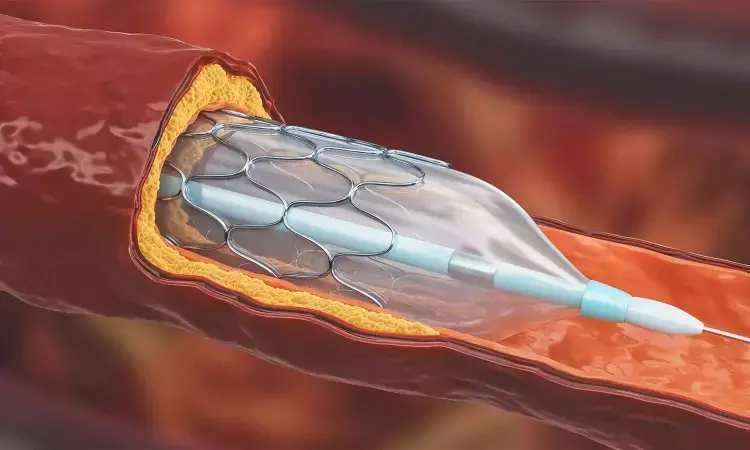- Home
- Medical news & Guidelines
- Anesthesiology
- Cardiology and CTVS
- Critical Care
- Dentistry
- Dermatology
- Diabetes and Endocrinology
- ENT
- Gastroenterology
- Medicine
- Nephrology
- Neurology
- Obstretics-Gynaecology
- Oncology
- Ophthalmology
- Orthopaedics
- Pediatrics-Neonatology
- Psychiatry
- Pulmonology
- Radiology
- Surgery
- Urology
- Laboratory Medicine
- Diet
- Nursing
- Paramedical
- Physiotherapy
- Health news
- Fact Check
- Bone Health Fact Check
- Brain Health Fact Check
- Cancer Related Fact Check
- Child Care Fact Check
- Dental and oral health fact check
- Diabetes and metabolic health fact check
- Diet and Nutrition Fact Check
- Eye and ENT Care Fact Check
- Fitness fact check
- Gut health fact check
- Heart health fact check
- Kidney health fact check
- Medical education fact check
- Men's health fact check
- Respiratory fact check
- Skin and hair care fact check
- Vaccine and Immunization fact check
- Women's health fact check
- AYUSH
- State News
- Andaman and Nicobar Islands
- Andhra Pradesh
- Arunachal Pradesh
- Assam
- Bihar
- Chandigarh
- Chattisgarh
- Dadra and Nagar Haveli
- Daman and Diu
- Delhi
- Goa
- Gujarat
- Haryana
- Himachal Pradesh
- Jammu & Kashmir
- Jharkhand
- Karnataka
- Kerala
- Ladakh
- Lakshadweep
- Madhya Pradesh
- Maharashtra
- Manipur
- Meghalaya
- Mizoram
- Nagaland
- Odisha
- Puducherry
- Punjab
- Rajasthan
- Sikkim
- Tamil Nadu
- Telangana
- Tripura
- Uttar Pradesh
- Uttrakhand
- West Bengal
- Medical Education
- Industry
Immediate revascularisation non-inferior to staged complete revascularisation in ACS and multivessel CAD: BIOVASC

Netherlands: A recent study in The Lancet has revealed that immediate complete revascularisation is non-inferior to staged complete revascularization for the primary outcome in patients presenting with multivessel disease and acute coronary syndrome.
The primary outcome was the composite of myocardial infarction, all-cause mortality, unplanned ischaemia-driven revascularisation, or cerebrovascular events one year after the index procedure.
Netherlands: Complete revascularisation by PCI (percutaneous coronary intervention) is linked with improved clinical outcomes in patients with multivessel coronary disease and acute coronary syndrome. Complete revascularization involves treating all significant blockages in the coronary arteries, including those not causing symptoms (non-culprit lesions).
Roberto Diletti, Erasmus University Medical Center, Rotterdam, Netherlands, and colleagues set out to examine whether PCI for non-culprit lesions should be strived during the index procedure or staged in BIOVASC, a prospective, open-label, non-inferiority, randomized trial.
The trial was conducted at 29 hospitals across Italy, Belgium, the Netherlands, and Spain. Patients aged 18–85 years with ST-segment elevation myocardial infarction (STEMI) or non-ST-segment elevation acute coronary syndrome and multivessel coronary artery disease with an identifiable culprit lesion were included.
Patients were randomly assigned in a ratio of 1:1 to undergo immediate or staged complete revascularization. In immediate complete revascularization, PCI of the culprit lesion first was followed by other non-culprit lesions deemed clinically significant by the operator during the index procedure. In staged complete revascularization, PCI of only the culprit lesion during the index procedure and PCI of all non-culprit lesions deemed clinically significant within six weeks after the index procedure.
Secondary outcomes included unplanned ischaemia-driven revascularization, myocardial infarction, and all-cause mortality one year after the index procedure.
The study led to the following findings:
· 764 patients were randomly allocated to the immediate complete revascularisation group and 761 patients to the staged complete revascularisation group.
· The primary outcome at one year occurred in 9·4% of 761 patients in the staged group and 7·6% of 764 patients in the immediate complete revascularisation group
· The investigators did not observe any difference in all-cause death between the staged and immediate complete revascularisation groups (1·2% versus 1·9%).
· Myocardial infarction occurred in 1·9% of patients in the immediate complete revascularisation group and 4·5% of patients in the staged complete revascularisation group (HR 0·41).
· In the staged complete revascularisation group, more unplanned ischaemia-driven revascularisations were performed than in the immediate complete revascularisation group (6·7% patients vs 4·2% patients).
In patients with multivessel disease and acute coronary syndrome, immediate complete revascularisation was non-inferior to staged complete revascularisation for the primary composite outcome. It was linked with a reduction in unplanned ischaemia-driven revascularisation and myocardial infarction.
Reference:
The study titled, "Immediate versus staged complete revascularisation in patients presenting with acute coronary syndrome and multivessel coronary disease (BIOVASC): a prospective, open-label, non-inferiority, randomized trial", was published in The Lancet.DOI: https://doi.org/10.1016/S0140-6736(23)00351-3
Dr Kamal Kant Kohli-MBBS, DTCD- a chest specialist with more than 30 years of practice and a flair for writing clinical articles, Dr Kamal Kant Kohli joined Medical Dialogues as a Chief Editor of Medical News. Besides writing articles, as an editor, he proofreads and verifies all the medical content published on Medical Dialogues including those coming from journals, studies,medical conferences,guidelines etc. Email: drkohli@medicaldialogues.in. Contact no. 011-43720751


